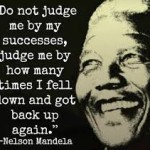
In the past 24 hours three things conspired to focus my curiosity on the subject of perseverance: an article by a university professor, a brain science research finding, and the writings of an 11-year-old boy.
Every week I get together with a few friends to sit meditation, share readings and discuss our lives on the meditative path. Last night I shared an article, ‘The Examined Life’, by Seido Ray Ronci, in which Ronci, a poet and professor of English at the University of Missouri, challenges his students to show up for life (and class), ask questions, get humble and recognize that life is short. I find this article inspiring and have read it several times since it was first published in Tricycle magazine. He writes:

Ronci adds: “It takes discipline, effort, perseverance, and concentration to live an examined life in this mass media culture.”
My partner, JoAnne, shared that all through her school years, she did as little work as possible. She expressed regret about having had that attitude; “I carried it through to my work life and I’m sure I missed a lot of opportunities for learning, and a sense of achievement,” she said. JoAnne knew she was smarter than the average person and, in a way, made a game out of seeing what she could get away with. Maria said something similar – another very intelligent gal. Me, I didn’t think I was intelligent back then, and so I wasn’t tempted along those lines.
I wondered out loud if any of us is really to blame for our past lack of focus and attention, our apparent laziness or dissoluteness. Young people are busy trying to attract mates and become adults, sometimes carrying huge emotional burdens from childhood, as were JoAnne and Maria. We move through life mostly as self-centered beings, seeking satisfaction and happiness and trying mightily to keep our pain to a minimum; hence distractions, of which there is no shortage in our time. Not that a well-placed word from the wise can’t make a difference, but I wonder if Ronci finds that does? He speaks about perseverance, which we consider a virtue. But could it be more a matter of having the right wiring?
The will to persevere has recently been localized in the brain through deep brain stimulation on two patients with epilepsy. Published December 5, 2013 in the Cell Press journal Neuron, the research by Dr. Josef Parvizi and colleagues of the Department of Neurology and Neurological Sciences at Stanford University, consisted in planting electrodes into the anterior midcingulate cortex, a region of the brain involved in emotions, pain and decision-making.

“When electrical charge was delivered to a location within this region, both patients described feeling the expectation of an imminent challenge
coupled with a determined attitude to surmount it. This was accompanied by increased heart rate and physical sensations in the chest and neck. They did not experience any of these psychological or physical effects when they thought that their brains were being stimulated but no electrical charge was delivered. The same effects did not occur with stimulation of nearby regions only five mm away.”
Dr. Parvizi notes: “That few electrical pulses delivered to a population of brain cells in conscious human individuals give rise to such a high level set of emotions and thoughts we associate with a human virtue such as perseverance tells us that our unique human qualities are anchored dearly* in the operation of our brain cells.”
The implication of Parvizi’s research is that some of us may have a distinct lack of activity in the brain region responsible for the will to persevere. It also implies that the region could be therapeutically stimulated to help us acquire this ‘virtue’.

The third thing that came up for me today that touches on the subject of perseverance, is an email I received with a copy of a short piece of writing by my nephew, Shaya Ilgacs. Shaya is now 23 years old and working as an apprentice chef in London, England. Upon graduation from grade six he wrote these few words, presented here unedited:
This is my last report as a grade 6. It’s my last year in Orde Street Public School. I’m glad I’m leaving and I’m not glad I’m leaving. I’ve been in this school for ten long year’s. I remember when I started in grade 1. I was not that good. But since then I have improved so much. From C’s to B’s to A’s. Well not all A’s but a lot more then I used to get. The things I’ve improved in is every thing I’ve improved in every single subject. Well every thing I know of. But I could tell you this, I still have a lot of improving to do. I have come to many difficult tasks in my life but I have accomplished them all. Next year I will come across even more but I will get through them all some way or another. I must thank all of my friends and my teacher. And especially my mom. I thank her for putting up with me for all these years. This is Shaya Ilgacs signing off.
I’ll bet that Seido Ray Ronci would love to have Shaya as a student!
David Sarnoff, the Russian-born American inventor and pioneer in the development of radio and television broadcasting, said: “The will to persevere is often the difference between failure and success.” Let’s hope that those of us who have this will to persevere use it wisely, and those who do not have it, quite possibly due to faulty wiring and a lifetime of poor habits, may acquire it and thus get more out of this brief life.
* Parvizi definitely meant ‘dearly’.
